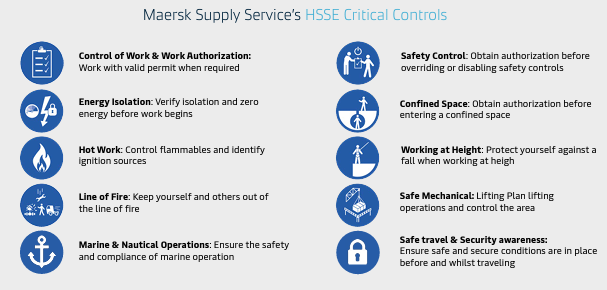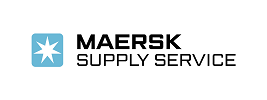
Author
Lars Bagger Hviid, Head of HSSEQ
“Incidents and near miss events unfortunately occur. When they happen, it is important that we learn from them. We have built procedures and processes to ensure that both our onshore and offshore organisation get as many learnings as possible, so we avoid repeating previous mistakes.”
‘Our Employees’ form one of the core values at Maersk Supply Service, and the safety of our personnel is an important part of this. Business priorities may change, but our core values are constant and are at the “heart” of our company.
Within our team, the phrase ‘personnel’ extends to all the Maersk Supply Service team, our valued third-party contractors, clients and key stakeholders. We do not differentiate for personnel safety.
Maersk Supply Service knows it is the actions of our personnel and extended teams that provide the key for project success.
Clear processes in place
At Maersk Supply Service, we believe no loss of life due to an accident at work is acceptable. Our Safety Critical Controls come from the study of fatal and serious accidents across our industry and are meant to draw attention to the activities most likely to lead to fatality during our offshore operations, and the life-saving actions over which an individual has control.
The Controls ensure the verification of safety critical barriers for operations completed onboard our vessels – and supplement a management framework, competent people, site rules or procedures.
Maersk Supply Service operates with the highest standards and work instructions. These standards, instructions, references and procedures are available via our Management System “UniSea”. This is an online Management System, where all material and tools are saved. All jobs are planned, coordinated and executed in a controlled manner. Maersk Supply Service has developed a work execution process with complete instructions to do so.
Empowerment of all
Maersk Supply Service has always empowered its crew members with a ‘Stop Work Authority’, to be exercised when a task or working environment is deemed unsafe. Over time, it formed an integral part of our culture.
Now, we are raising the bar, and the ‘Stop Work Authority’ has become a ‘Stop Work OBLIGATION’ to intervene. This is not just a change in terminology but reflects our commitment to deliver the industry’s highest safety performance. We expect people to stop a job that is perceived to be potentially unsafe.
Reporting for learning
All Incidents and Near Misses must be reported immediately. It is vital to the safety culture – both onshore and offshore – that incidents are reported promptly:
- To improve and learn from what went wrong;
- And to avoid repetition of the same error.


